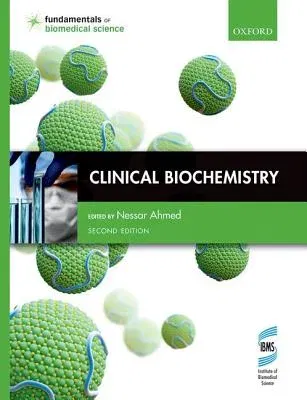Nessar Ahmed
(Author)Clinical Biochemistry (UK)Paperback - UK, 1 January 2017

Qty
1
Turbo
Ships in 2 - 3 days
Only 1 left
Free Delivery
Cash on Delivery
15 Days
Free Returns
Secure Checkout

Part of Series
Fundamentals of Biomedical Science
Print Length
768 pages
Language
English
Publisher
Oxford University Press, USA
Date Published
1 Jan 2017
ISBN-10
0199674442
ISBN-13
9780199674442
Description
Product Details
Author:
Book Edition:
UK
Book Format:
Paperback
Country of Origin:
US
Date Published:
1 January 2017
Dimensions:
24.38 x
19.05 x
2.79 cm
ISBN-10:
0199674442
ISBN-13:
9780199674442
Language:
English
Pages:
768
Publisher:
Weight:
1224.7 gm